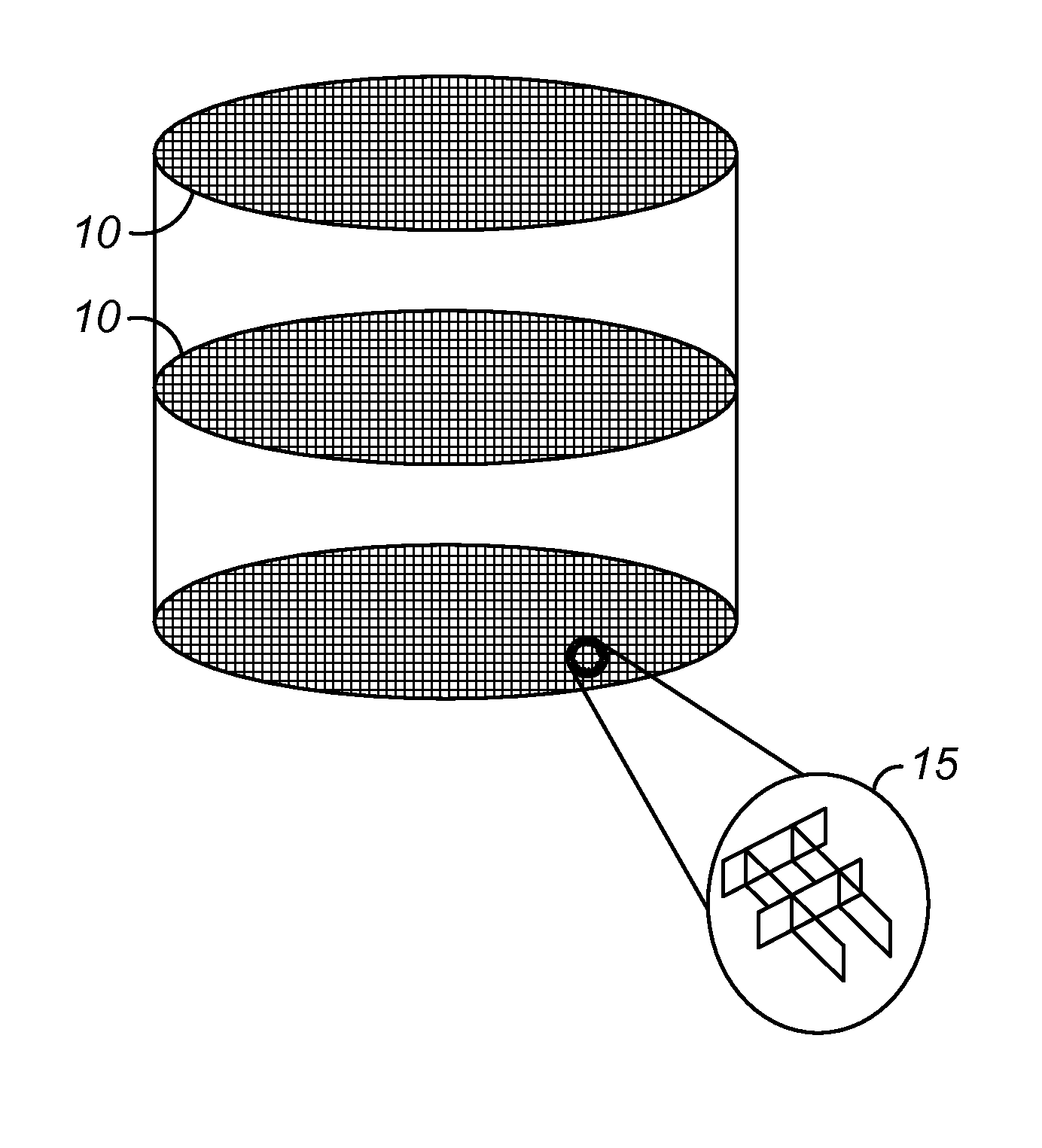Reactor multi-pass grids for improved catalyst hydrodynamics
- Summary
- Abstract
- Description
- Claims
- Application Information
AI Technical Summary
Benefits of technology
Problems solved by technology
Method used
Image
Examples
Embodiment Construction
[0014]There are many reactor processes that utilize fluidized catalyst beds. The catalyst beds are fluidized for providing good contact between the catalyst and reactants. A methanol to olefins (MTO) reactor utilizes a deep catalyst bed. Along with improving the catalyst, improving the conditions within the reactor are also important. The catalyst bed in the MTO is a deep fluidized catalyst bed and flows downward through the reactor. Deep catalyst bed can develop regions where the catalyst does not flow well, and where gas can be maldistributed within the reactor. To improve the movement of catalyst within the reactor and the flow and contact with the gas reactants, vertical plates, or grids, were placed within the reactors. The grids contributed to improving the uniformity of catalyst within the reactor bed. This leads to improve product yields. The grids extend horizontally across the reactor bed and are positioned at multiple elevations within the catalyst bed.
[0015]The grids are...
PUM
 Login to View More
Login to View More Abstract
Description
Claims
Application Information
 Login to View More
Login to View More - R&D
- Intellectual Property
- Life Sciences
- Materials
- Tech Scout
- Unparalleled Data Quality
- Higher Quality Content
- 60% Fewer Hallucinations
Browse by: Latest US Patents, China's latest patents, Technical Efficacy Thesaurus, Application Domain, Technology Topic, Popular Technical Reports.
© 2025 PatSnap. All rights reserved.Legal|Privacy policy|Modern Slavery Act Transparency Statement|Sitemap|About US| Contact US: help@patsnap.com


